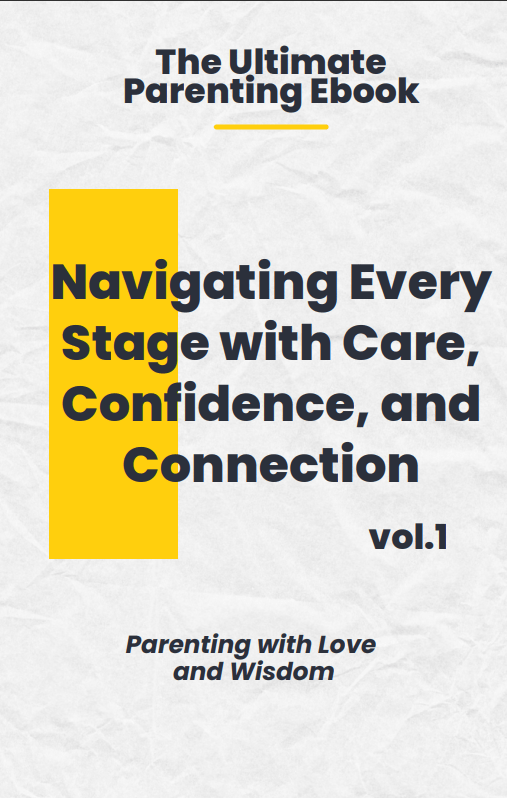Navigate the toddler age range like a pro. Our guide offers insights from the early days to the exciting milestones, ensuring you’re prepared every step of the way.

As parents, we all know that the journey of raising children is a swift one, especially toddlers. One moment, you’re captivated by your baby’s charming gummy smile, and the next, you’re navigating bedtime negotiations with your nurturing toddler. While time may leave you wondering, the excitement of what lies ahead during the toddler years is equally intriguing. In this article, we delve into the specifics of the toddler ages and provide insights into what to expect during this transformative phase.
Table of Contents
ToggleWhat Age Is Considered a Toddler?
The toddler age group commences at one year old, with the endpoint being a bit less distinct, generally considered when a child turns 3. According to Expert pediatricians, toddlers are typically recognized between the ages of 1 to 3, with the subsequent preschool phase spanning from 3 to 5 years old. Let me tell you for better understanding that the term “toddler” itself, dating back to the early 19th century, is derived from the verb “toddle,” aptly describing the unsteady steps of 1 to 2 years old.
Why Toddler Age Range Matters?
Understanding why the toddler age range matters is pivotal for parents navigating the intricate landscape of child development. This phase, spanning from one to three years old, encompasses critical milestones that lay the foundation for a toddler’s future. The toddler age range is a canvas where motor skills, language acquisition, and behavioral patterns undergo substantial transformations. It’s a period of rapid cognitive development, marked by the emergence of independence, social awareness, and emotional expression. Recognizing and embracing the nuances of this age range allows parents to tailor their guidance and support, fostering a positive environment for optimal growth. The skills acquired during toddlerhood serve as building blocks for later stages, making this period a cornerstone in a child’s developmental journey. Moreover, understanding the unique challenges and joys of the toddler age range enables parents to navigate this transformative phase with patience, empathy, and a deeper connection to their child’s evolving needs.
How Old is a Toddler and What Does he Do in This period?
Toddler Age Range: 1-2 Years Old
This initial stage of toddlerhood, spanning from 1 to 2 years old, witnesses significant developmental milestones. Beyond the eagerly awaited first steps and words, there are numerous smaller yet crucial achievements to anticipate in this period.
Milestones
- Motor Skills Development: Toddlers refine both fine and gross motor skills during this age, including walking, running, standing on tiptoes, and picking up objects.
- Language Development: Speech evolves into two-word sentences, and by 18 months, toddlers attempt three or more words besides the typical “mama” and “dada.”
- Cognitive Abilities: Toddlers begin sorting shapes and colors, following two-step instructions, and demonstrating early problem-solving skills.
Behavioral Development
Toddlers in this age range start understanding and exploring the world around them. They imitate behaviors, distinguish themselves from others, and show a keen interest in family members and peers.
Navigating the realm of toddler behavior between the ages of 1 to 2 is a captivating journey marked by rapid developments and delightful idiosyncrasies. This transformative phase witnesses toddlers honing both their fine and gross motor skills, embarking on the thrilling adventure of taking those initial steps, and uttering their first words. From walking unsteadily to stacking blocks and pointing to familiar objects, these pint-sized explorers exhibit a remarkable curiosity about the world around them. The language blossoms into two-word sentences, with attempts to vocalize three or more words, expanding their communicative abilities. Behavioral evolution during this period is equally noteworthy as toddlers keenly observe and imitate actions, distinguishing themselves from others and engaging in simple games like peekaboo. It’s a time of discovery and recognition, as they learn to sort shapes and colors, follow two-step instructions, and express their budding personalities. Amidst these exciting milestones, the toddler’s developing independence might be accompanied by occasional tantrums, reflecting their struggle to articulate emotions. As parents, embracing the nuances of toddlerhood between one and two years old involves fostering a supportive environment that encourages exploration, celebrates achievements, and guides these little adventurers through the intricacies of their burgeoning world.
Toddler Age Range: 2-3 Years Old
As your child approaches the latter part of the toddler age range, a surge of independence and the infamous “terrible twos” become noticeable. This is a time of boundary-testing and the assertion of newfound autonomy.
Milestones
By the age of three, toddlers typically achieve the following:
- Physical Achievements: Climbing stairs, stacking blocks, drawing lines on paper, and engaging in more sophisticated play.
- Language Proficiency: Saying over 200 words, using two to three sentences in conversation, and understanding cause and effect.
Behavioral Development
With increasing independence, toddlers in this stage desire to do things on their own, displaying problem-solving skills. However, this newfound autonomy may be accompanied by tantrums, hitting, and biting as they grapple with their evolving emotions.
Embarking on the rollercoaster ride of toddler behavior, aged one to two, unveils a captivating saga of mini-expeditions and charming quirks. Picture this: your little one, teetering on unsteady legs, determined to conquer the world one wobbly step at a time. Blocks become their artistic medium, each stack a triumph, a miniature architectural masterpiece. Language, a canvas, is adorned with the brushstrokes of two-word sentences and the courageous attempts at a three-word symphony, often centered around the magnetic allure of “mama” and “dada.”
Now, let’s dive into the intriguing realm of behavioral theatrics. Imagine your toddler as a tiny Sherlock Holmes, keenly observing and imitating your every move—vacuuming, hair brushing, and even the clandestine art of pretending to converse on a toy phone. Peekaboo becomes a thrilling drama, an epic unfolding of giggles and surprises. The toddler’s cognitive orchestra plays out as they sort shapes and colors, executing a symphony of learning.
Yet, amidst this fascinating tapestry, the budding independence of your pint-sized explorer might unleash occasional tantrums, a dramatic expression of their emotions. It’s a dynamic spectacle where every trial and triumph crafts a narrative unique to your toddler, making this phase an adventure both unpredictable and utterly enchanting.
Parenting Tips for Toddlers Ages 1-3
Navigating toddlerhood is a critical phase in your child’s development, with the “terrible twos” presenting both challenges and joys. Consider these expert tips to ease the journey:
- Encourage Curiosity: Foster your child’s curiosity through visits to zoos, child-friendly museums, and interactive activities like reading and playing games.
- Empower Independence: Support your toddler’s independence by allowing them to make simple choices and actively participate in age-appropriate activities.
- Validate Emotions: Create a safe emotional space for toddlers by validating their feelings, fostering an emotional connection, and reassuring them that their emotions are valid.
- Teach Coping Mechanisms: Help your child learn healthy coping mechanisms for their feelings and model these skills, promoting emotional regulation.
- Honest Communication: Be open about your feelings to build your child’s emotional vocabulary and normalize the acceptance of various emotions.
- Set Boundaries: Establish boundaries for appropriate behavior while acknowledging feelings. Guide your child toward alternative actions when faced with challenging emotions.
- Patience is Key: Understand that your child’s behavior is part of their exploration and learning process. Practice consistency in limit-setting and approach challenges with patience.
Conclusion
Toddlerhood is a dynamic period filled with growth and discovery. Embrace the journey, stay patient, and remember that both you and your toddler are navigating this exciting phase together.
You may also interested in : Toddler Feeding Routine: A Comprehensive Guide to Nurturing Healthy Eating Habits
FAQs
1. What defines the toddler age group?
The toddler age group starts at one year old, generally extending until a child turns 3. Recognition of toddlers spans from ages one to 3, with the subsequent preschool phase covering 3 to 5 years old.
2. Why is it called “toddler”?
The term “toddler” dates back to the early 19th century and is derived from the verb “toddle,” accurately describing the unsteady steps of one- and 2-year-olds.
3. What are the milestones in the 1-2 years age range?
Significant developmental milestones include refining motor skills like walking, running, standing on tiptoes, picking up objects, evolving speech into two-word sentences, attempting three or more words by 18 months, and engaging in cognitive tasks like sorting shapes and colors.
4. What behavioral developments occur in the 1-2 years age range?
Toddlers start understanding and exploring the world, imitating behaviors, distinguishing themselves from others, and showing interest in family and peers.
5. What achievements can be expected in the 2-3 years age range?
Toddlers around age three achieve physical feats like climbing stairs, stacking blocks, and engaging in sophisticated play. They also develop language proficiency, understanding cause and effect.
6. How does behavioral development progress in the 2-3 years age range?
With growing independence, toddlers desire autonomy, displaying problem-solving skills. However, this newfound independence might lead to tantrums, hitting, and biting as they grapple with evolving emotions.
7. What parenting tips are recommended for toddler ages 1-3?
Encourage curiosity through visits to zoos and child-friendly museums, empower independence by allowing simple choices, validate emotions, teach coping mechanisms, communicate openly about feelings, set boundaries, and approach challenges with patience.
8. Why is patience emphasized in dealing with toddler behavior?
Patience is crucial as toddlers explore and learn. Consistent limit-setting and patient approaches allow understanding of the child’s perspective, fostering a positive and supportive environment during this dynamic phase.




